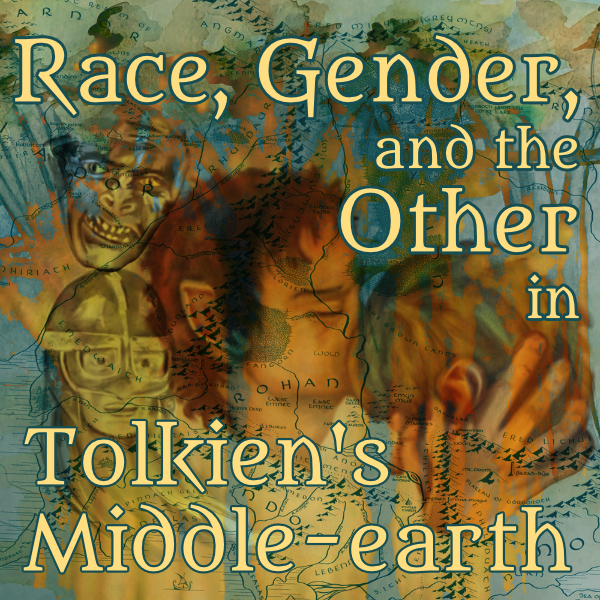INSTRUCTORS:
Looking to purchase an Anytime Audit? Our Lectures are moving! Click HERE to learn all about it.
J. R. R. Tolkien was born in South Africa to British parents. His family moved back to England before he was four, though his father stayed behind. Tolkien was a child of the Victorian British Empire, but was also orphaned by the time he was twelve years old. He was a Catholic in a largely Protestant country, and later a historical philologist in a more modern-leaning college. Tolkien understood marginalization and feelings of difference, and he was very sympathetic to this. In his work, we clearly see his sympathies towards women’s challenges, and towards the plight of indigenous peoples. That said, Tolkien could not step completely outside of the systemic problems of his culture. At times he falls back on culturally-recognized tropes and images that certainly do not dismantle racial or gender stereotypes, and may even reinforce them.
This course explores the issues of race, sexuality, gender, and Othering in the mythological legendarium of J.R.R. Tolkien, focusing primarily on The Lord of the Rings. We will examine the effects of gender on male and female characters, including the types of femininity and masculinity portrayed. We will confront the role of race in the texts, including issues around Blackness, Whiteness, and ethnicity. We will explore these questions simultaneously, through the intersections of race, gender, and issues of sexuality in Middle-earth. Tolkien’s writing continues to resonate in twenty-first century culture; this course aims to read his work through a twenty-first century optic.
Weekly Schedule
This course will include two 90-minute pre-recorded lectures and one 1-hour discussion sessions per week as assigned (4 hours total weekly). Remember to indicate your availability and time zone on the Goldberry registration system.
Course Schedule
Week 1: Book I Part 1
Lecture 1: Introduction to the Critical Theory
Lecture 2: Hobbits, Wraiths, Black Riders, and Farmer Maggot
Week 2: Book I Part 2
Lecture 1: Tom Bombadil, Goldberry, and the squint-eyed Southerner
Lecture 2: Strider, Arwen, and Glorfindel
Week 3: Book II Part 1
Lecture 1: Frodo, Bilbo, and Saruman
Lecture 2: Balrogs, Orcs, and Liminality
Week 4: Book II Part 2
Lecture 1: Galadriel, Elves and Ethnicity, and the Sublime
Lecture 2: Orcs, Boromir, and the Edain
Week 5: Book III Part 1
Lecture 1: Orcs, Ents, and the Riders of Rohan
Lecture 2: Gandalf, Wormtongue, and Eowyn
Week 6: Book III Part 2
Lecture 1: War, Masculinity, Gimli, and the Dwarves
Lecture 2: Saruman, Sauron, and Pippin
Week 7: Book IV Part 1
Lecture 1: Gollum, Jung, Liminality, and the Uncanny
Lecture 2: Faramir, Spirituality, and Belief
Week 8: Book IV Part 2
Lecture 1: Sam, Frodo, and Gollum
Lecture 2: Shelob, Sam, and Orcs
Week 9: Book V Part 1
Lecture 1: Spaces of Memory, Gender, and Eowyn
Lecture 2: Homoamory, Masculinity, and Indigeneity
Week 10: Book V Part 2
Lecture 1: Eowyn, Aragorn, and Eomer
Lecture 2: Grief, Leadership, and Eucatastrophe
Week 11: Book VI Part 1
Lecture 1: Frodo, Sam, and Gollum
Lecture 2: Homoamory, Healing, and Leadership
Week 12: Book VI Part 2
Lecture 1: Indigeneity, Intimacy, and Saruman
Lecture 2: The Foreigner, Sexuality, and Land as Gendered Space
Required Texts
The Amazon links are provided for convenience only, and we encourage students to purchase texts wherever they wish.
The Lord of the Rings (no required edition)
Tolkien and Alterity (Eds. Christopher Vaccaro and Yvette Kisor)
Course History
This course has been offered in the following semesters.
| Semester | Preceptor(s) |
|---|---|
| Summer 2026 | Dr. Sara Brown & Dr. Christopher Vaccaro (TBC) |
| Spring 2023 | Dr. Sara Brown & Dr. Christopher Vaccaro |
Course Artwork
Original course artwork by Maureen Dillon.



